Can you water plants with dishwater? Experts say there are a few things to be wary of before using it in your yard
Bear in mind these factors if you're planning to using dishwater on plants
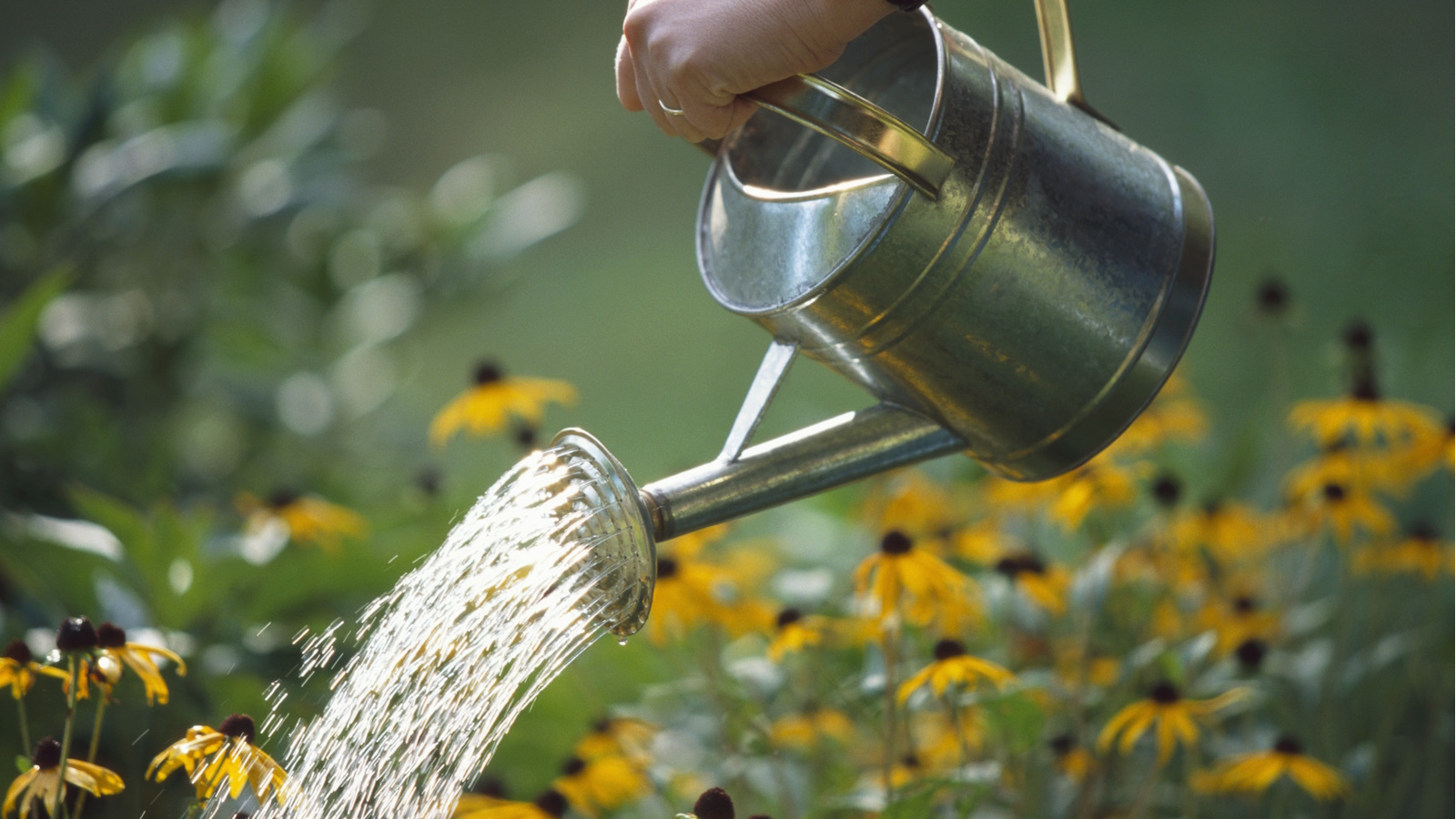

Plant lovers like me are always on the hunt for new hacks to garden more sustainably and improve plant health. Well, the latest method to try involves the gray water you generate everyday.
Just like watering plants with bath water, dishwater forms part of gray water - domestic waste water. Using gray water in your yard or on your houseplants is a step towards a more eco-friendly garden. However, you might be concerned about what's lurking in the water and how it will affect the health of your soil and plants.
The truth is that using dishwater on your plants safely depends on a range of factors. We've spoken to plant experts to find out more about watering plants with dishwater and they reveal everything we should be aware of.
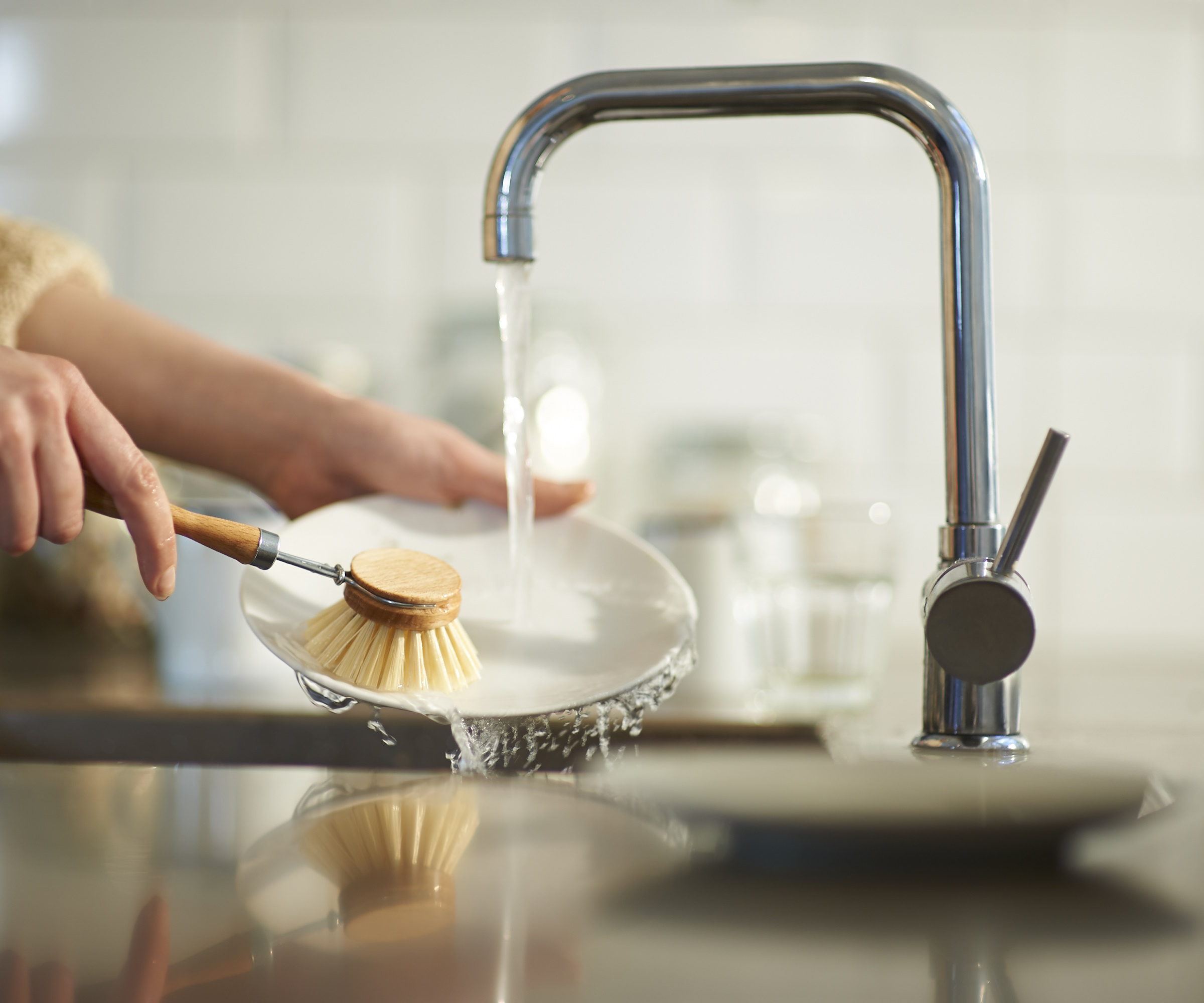
Can you water plants with dishwater?
The short answer is that you can use dishwater to water plants, so long as it is in the right condition. The presence of certain elements in the water could cause your soil health to decline and harm your plants.
Be aware of food residue in dishwater
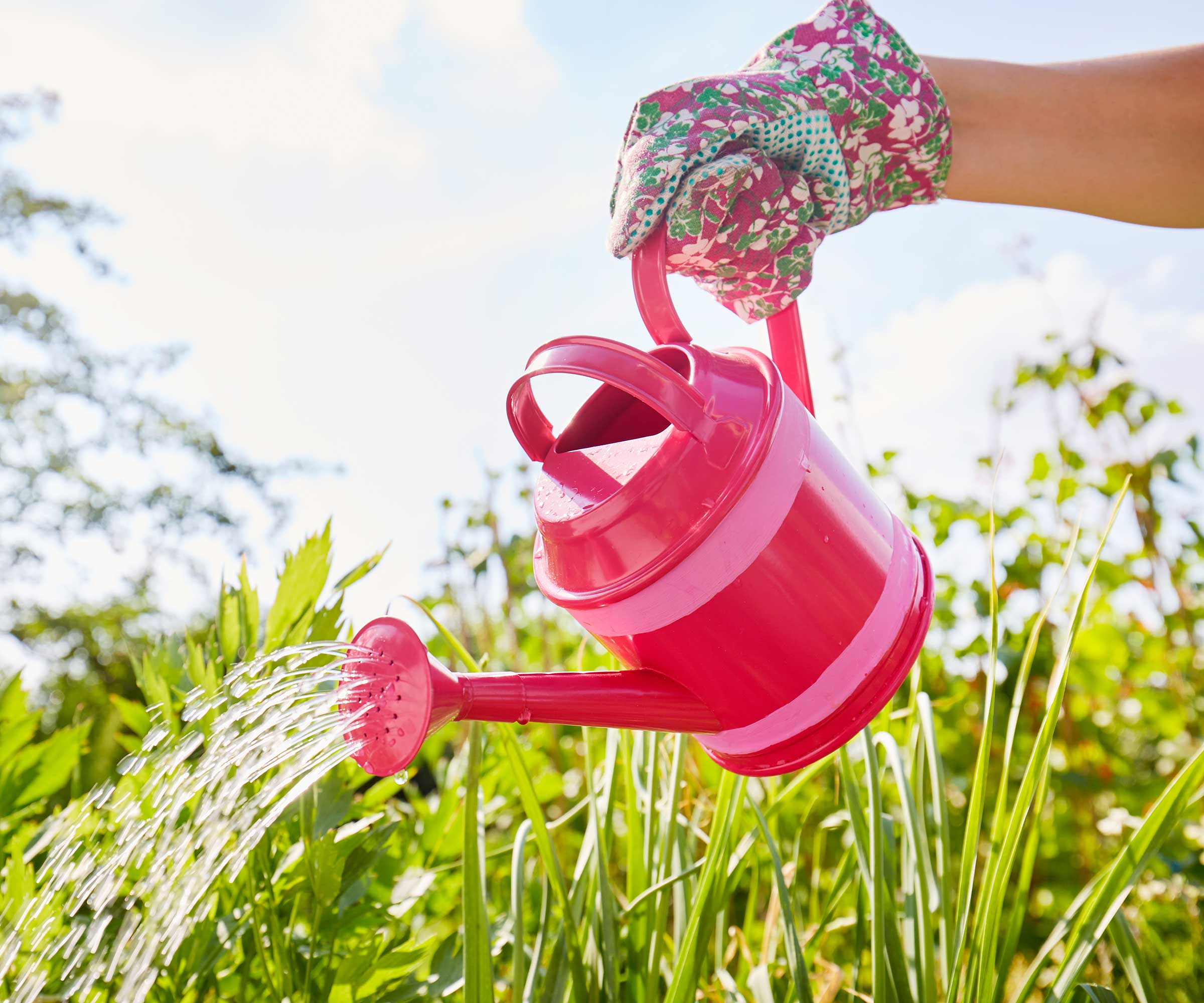
Not only is it important to be aware of how to water plants and when to water plants to keep them happy, you should also be aware of the quality of water that you are giving them. Like watering plants with banana water, different water mixtures can be helpful to plants, while others can be harmful.
'Dishwater contains food residues and other organic matter, which attract rodents and insects. It can also contain harmful bacteria and viruses, which can cause various illnesses,' notes Vladan Nikolic from Mr. Houseplant.
Just like using orange peels on plants, having food scraps around your plants could attract common houseplant pests and outdoor pests. It can be helpful to first run your dishwater through a strainer, like this strainer from Walmart, to remove any large food scraps.
Nevertheless, it's important to be aware that even food residue can attract pests and pass on harmful bacteria to plants. 'You might see leaves turning yellow or brown if you add dishwater to a plant's soil or leaves,' says Jamie Mitri, founder and CEO of Moss Pure.

Vladan Nikolic is a houseplant expert with over 10 years of experience. He is the founder of the houseplant care blog Mr. Houseplant and is a social media influencer for houseplants with over 500,000 followers.

Jamie is the founder and CEO of Moss Pure, a start-up created in June 2020 at the MIT Lebanon Challenge, where it won first place in the health, energy, and waste management track.
Avoid adding harmful chemicals to dishwater
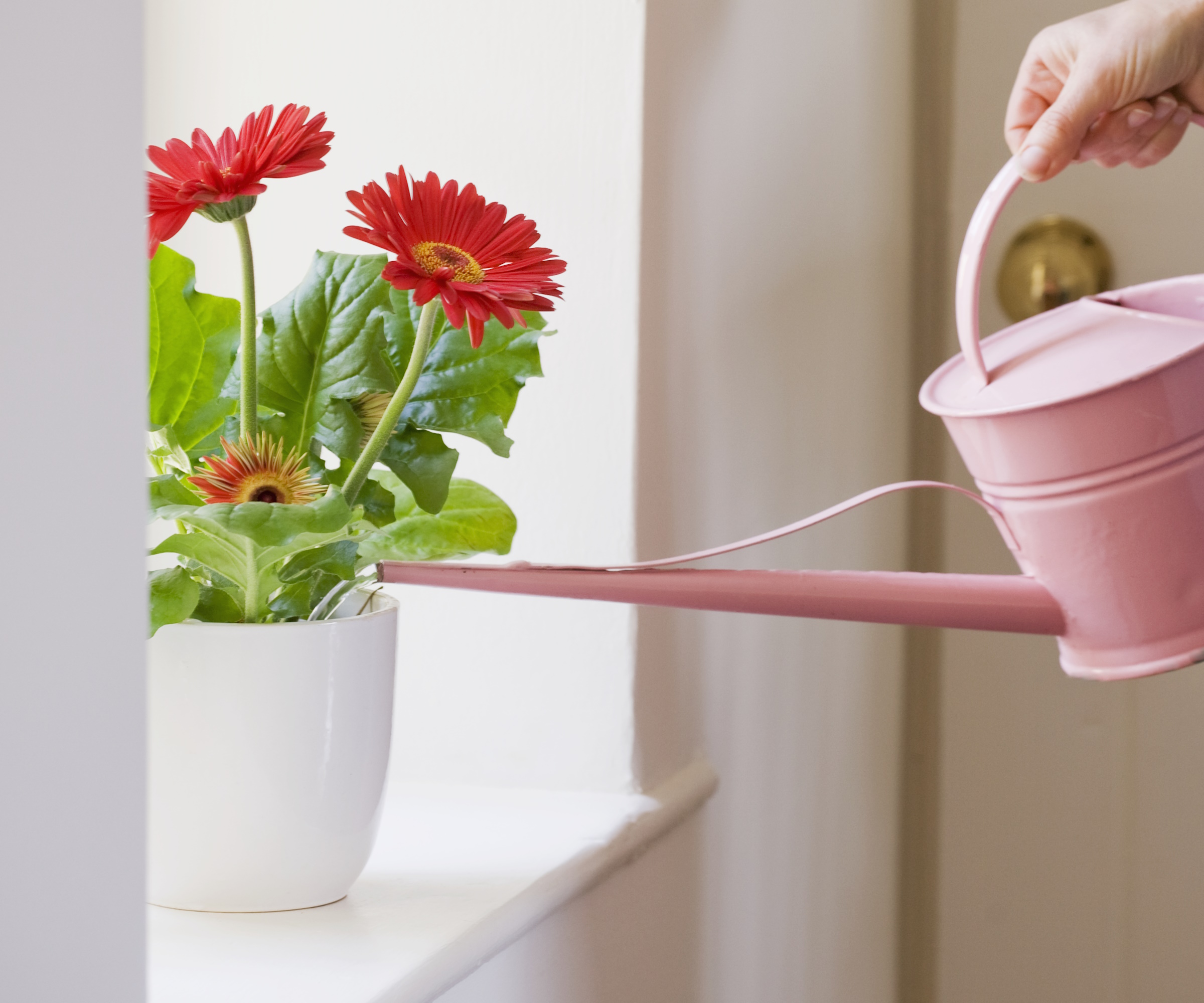
Not only do you have to be aware of food residue in dishwater, but there may also be harmful chemicals lurking in it that can affect your soil pH and harm your plants.
'Soapy wash water from dishes can be used safely for watering with some caution and reading the labels on detergents,' notes Vladan. 'However, if your home has a water softener, you shouldn’t use dishwater long-term because it contains salts that can damage soil structure, particularly if your soil type is rich in clay,' he adds.
Certain chemicals can make your soil more alkaline, while boron can cause leaf tip burns. Vladan suggest avoiding detergents and dish soap containing sodium, boron and petroleum distillate among others, if you are planning to use your dishwater on plants. Using something like this plant-based liquid dish soap from Walmart is a safer option.
How to safely use dishwater on plants
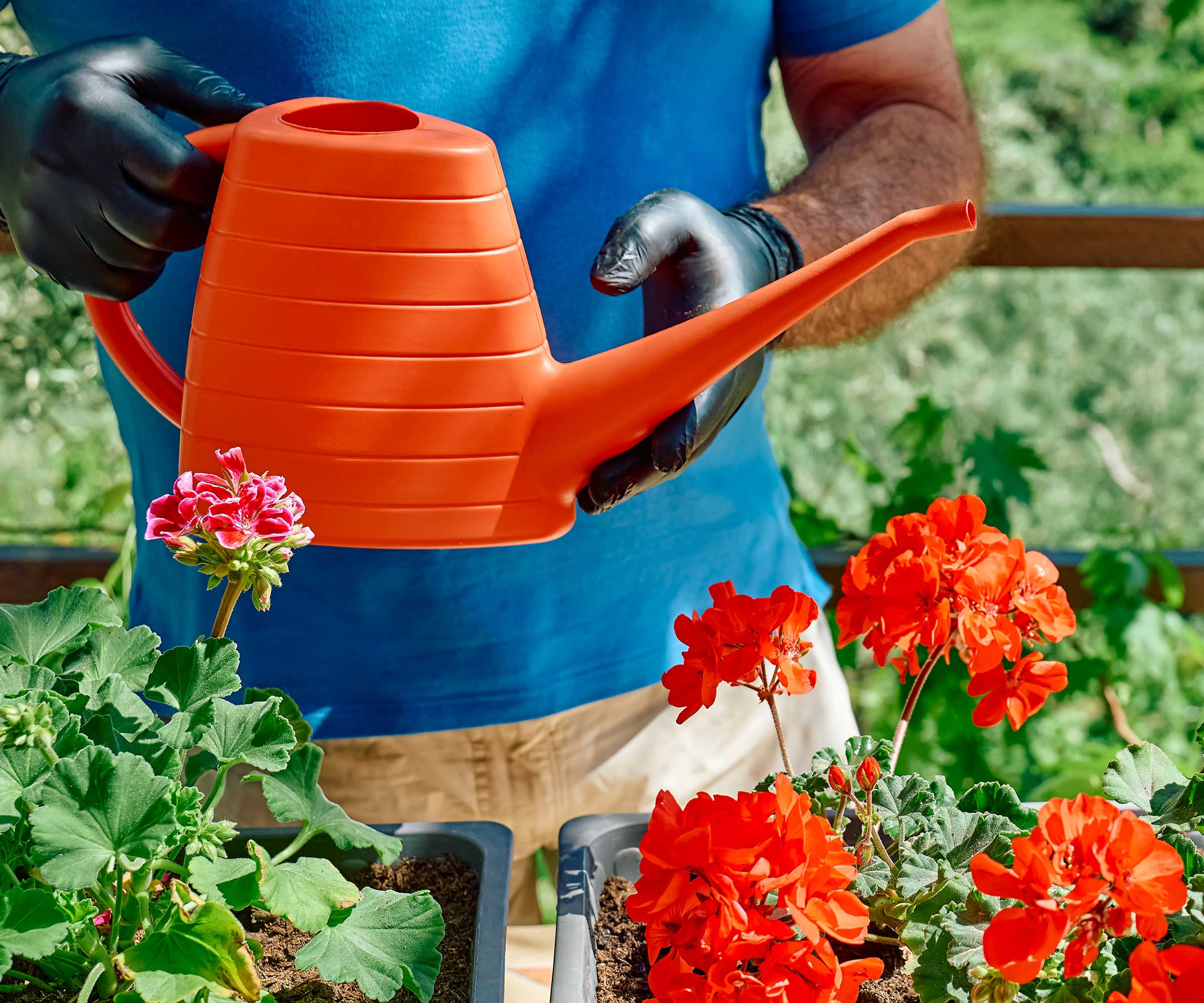
Just because there can be harmful things in your dishwater, doesn't mean it's impossible to use it to water your plants. There are just a few things you should do to keep your plants safe.
'Use it for a limited time and take breaks often (every two weeks or so),' says Vladan. 'Water the soil periodically with regular water to flush out the salts in the soil,' he adds.
You should also avoid using dishwater on your kitchen garden or herb garden to prevent any contamination and diseases on edible crops.
'Don’t store the dishwater for more than 24 hours; use it as soon as possible to prevent bacteria build-up,' Vladan notes.
You can also try other ways to reduce water waste in the garden if you are concerned about the risk of dishwater, such as collecting rainwater with this rain barrel from Amazon.
FAQs
Do plants like washing up liquid?
A small amount of soap won't harm plants, such as if it is present in dishwater you use on plants. However, to be on the safe side it's a good idea to use dish soap that doesn't contain harmful chemicals, such as sodium. Take care to flush away any salt build-up on plants by not solely relying on dishwater to water them. Too much exposure to a sodium-based washing up liquid, or other chemicals, could burn your plants or affect the pH of your soil.
Watering plants with dishwater is can be great way to use up gray water and garden more sustainably. However, you should only use dishwater if it doesn't contain a large amount of harmful chemicals or food residue that may cause pests and problems.
Read up on other garden watering mistakes to ensure you keep your plants hydrated without risk of harm.
Sign up to the Homes & Gardens newsletter
Design expertise in your inbox – from inspiring decorating ideas and beautiful celebrity homes to practical gardening advice and shopping round-ups.

Tenielle is a Gardens News Writer at Homes & Gardens. She holds a qualification in MA Magazine Journalism and has over six years of journalistic experience. Before coming to Homes & Gardens, Tenielle was in the editorial department at the Royal Horticultural Society and worked on The Garden magazine. As our in-house houseplant expert, Tenielle writes on a range of solutions to houseplant problems, as well as other 'how to' guides, inspiring garden projects, and the latest gardening news. When she isn't writing, Tenielle can be found propagating her ever-growing collection of indoor plants, helping others overcome common houseplant pests and diseases, volunteering at a local gardening club, and attending gardening workshops, like a composting masterclass.
-
 Go guilt-free – I'm a professional home organizer and these are the 5 decluttering rules I urge you to break
Go guilt-free – I'm a professional home organizer and these are the 5 decluttering rules I urge you to breakDitch the rules for stress-free declutter
By Orna Fathers
-
 This ultra-tiny 'luxury villa' is sold on Amazon – estate agents say this unconventional, pre-assembled home is more than a novelty
This ultra-tiny 'luxury villa' is sold on Amazon – estate agents say this unconventional, pre-assembled home is more than a novelty'Tiny homes are more than a trend. They’re part of a bigger conversation about how we live' – this foldable house is one of many shaping 2025's real estate industry
By Megan Slack